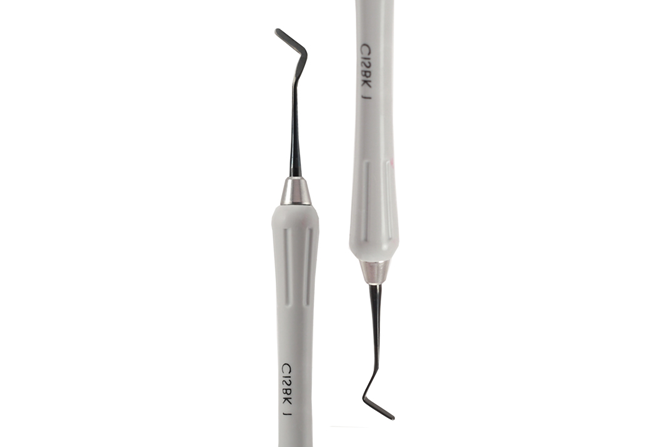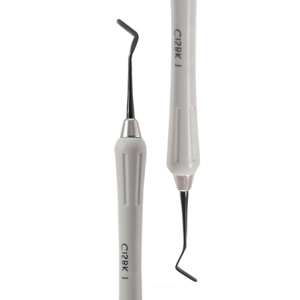Need help? Call us:
+91-9310354377
- ORAL AND MAXILLOFACIAL SURGERY
- ENDODONTIC AND CONSERVATIVE DENTISTRY
- RUBBER DAM CLAMP
- COMPOSITE INSTRUMENTS ANTERIOR & POSTERIOR BLUE
- RUBBER DAM FRAME
- SPOON EXCAVATOR
- COMPOSITE INSTRUMENTS GOLD FLEXI THIN
- ENDO INSTRUMENT KITS
- PLUGGER/CONDENSERS
- RCT PLUGGER
- ART INSTRUMENTS
- PLASTIC FILLING INSTRUMENTS
- RCT SPREADERS & HEAT CARRIERS
- BURNISHER
- ROOT FRAGMENT STEIGLITZ
- CARVER
- COMPOSITE INSTRUMENTS TITANIUM BLUE
- MATRIX RETAINER
- COMPOSITE INSTRUMENTS TITANIUM GOLD
- CHISELS & HOE
- PLACEMENT INSTRUMENTS
- MARGIN TRIMMER
- COMPOSITE INSTRUMENTS SILICON BLACK/BLUE
- AMALGAM CARRIER
- RUBBER DAM FORCEP AND PUNCH
- COMPOSITE INSTRUMENTS ANTERIOR & POSTERIOR BLACK
- DIAGNOSTICS
- PROSTHODONTIC
- ARTICULATOR, PUTTY CUTTER & PLASTER SHEARS
- CALIPER IWANSON
- IMPRESSION TRAY DENTULOUS PERFORATED
- IMPRESSION TRAY DENTULOUS NON-PERFORATED
- WAX & MODELLING CARVER
- IMPRESSION TRAY EDENTULOUS PERFORATED
- PKT CARVERS
- IMPRESSION TRAY EDENTULOUS NON-PERFORATED
- PKT CARVERS COLOR CODED
- IMPRESSION TRAY HALF
- WAX KNIVES & SPATULA
- CROWN REMOVER
- ARTICULATING PAPER HOLDER & CROWN HOLDING FORCEP
- ANTERIOR AND POSTERIOR & ADJUSTABLE
- GINGIVAL CORD PACKER
- PROSTHODONTIC INSTRUMENT KITS
- CEMENT SPATULA & HIDEMANN SPATULA
- IMPRESSION TRAY DENTULOUS PERFORATED PEDO
- ORAL SURGERY
- ROOT ELEVATOR STANDARD
- CHEEK RETRACTORS & TISSUE RETRACTORS
- ROOT ELEVATOR LINDO LEVIAN
- PERIOSTEAL ELEVATOR & BONE FILE
- BONE RONGEURS
- DENTAL SYRINGE
- SCISSORS
- ASSORTED SURGICAL KITS
- TUNGSTEN CARBIDE SCISSOR & NEEDLE HOLDER
- NEW CLINIC SET UP KITS
- EXTRACTION FORCEPS STANDARD
- HEMOSTATS & NEEDLE HOLDERS
- PROXITIP - LUXATING HYBRIDS
- EXTRACTION FORCEPS PREMIUM
- TOWEL CLAMPS, DRESSING & STERLISING FORCEPS
- EXTRACTION FORCEPS PREMIUM #BLACK
- EXTRACTION FORCEPS ERGONOMIC
- ALLIS & TISSUE FORCEPS
- RETRACTOR
- EXTRACTION FORCEPS SECURE
- METAL & FRAZIER SUCTION TUBE
- EXTRACTION FORCEPS PEDO STANDARD
- EXTRACTION FORCEPS ATRAUMATIC
- BONE CHISEL & MALLETS
- ROOT ELEVATOR PREMIUM
- EXTRACTION FORCEPS AMERICAN PATTERN
- EXTRACTION FORCEPS PEDO PREMIUM
- SCALPEL HANDLES
- INSTRUMENTS MANAGEMENT SYSTEM
- PERIODONTAL
- PERIODONTAL CHISEL
- VISTA TUNNELING PROCEDURE
- CORN SUTURE PLIER & POCKET MARKER
- TUNNELLING KNIVES
- TISSUE NIPPER & BLADE HOLDER
- SUB GINGIVAL SCALER
- SUPRA GINGIVAL SCALER
- GRACEY CURETTE
- PERIO PROBES
- MC CALL CURETTES
- PERIOTOMES
- LANGER CURTTES
- PERIODONTAL SCALERS
- COLUMBIA CURETTES
- PERIODONTAL KNIVES
- SURGICAL CURETTE & BONE CURETTE
- PERIODONTAL FILES
- GRACEY CURETTE COLOR CODED
- PERIO INSTRUMENT KITS
- MICRO SURGERY
- ACCESSORIES
- NEW ARRIVAL
- LUXATIP
- IMPLANTOLOGY
- ORTHODONTICS
COMPOSITE INSTRUMENTS SILLICON PLASMA BLACK #8
COMPOSITE INSTRUMENTS SILLICON PLASMA BLACK #8
₹1,900.00 Original price was: ₹1,900.00.₹1,520.00Current price is: ₹1,520.00.
Composite Instruments: Silicon Plasma Black #8
Composite instruments, particularly those featuring advanced materials such as Silicon Plasma Black #8, represent the cutting edge of modern engineering and instrumentation technology. These instruments are vital in various industries, ranging from aerospace to medical devices, offering superior performance, durability, and precision. In this article, we will explore what composite instruments are, how Silicon Plasma Black #8 fits into this field, and its applications and advantages.
What are Composite Instruments?
Composite instruments are those that integrate multiple materials, often combining the strengths of each to create a product that performs better than any single material alone. The term “composite” refers to a combination of materials, which can include polymers, metals, ceramics, and more. In the case of instruments like sensors, gauges, or control systems, composites can optimize strength, flexibility, weight, and resistance to environmental factors.
Instruments made from composite materials are designed to achieve a balance between performance and longevity, often outperforming traditional, homogeneous materials. These instruments are integral to industries where reliability and accuracy are paramount. Applications include medical devices, aerospace instrumentation, and high-performance automotive systems.
Silicon Plasma Black #8: An Advanced Material
Silicon Plasma Black #8 refers to a specific type of material, which, when used in composite instruments, provides several advantages. Silicon-based composites are known for their high resistance to temperature fluctuations, electrical conductivity, and lightweight properties. Plasma treatment techniques, such as those used in Silicon Plasma Black #8, enhance the material’s surface characteristics, providing improved adhesion, durability, and resistance to corrosion.
The term “Plasma Black #8” suggests a high-tech process in which the silicon material is exposed to plasma, a state of matter that contains electrically charged particles. This process allows for the modification of the material’s surface, making it more suitable for use in high-performance environments. The “Black” designation could refer to a particular color achieved during the plasma treatment process, often used for aesthetic and functional purposes. In addition, this specific variant, #8, might indicate a specific grade or treatment process that enhances the material’s properties.
Advantages of Silicon Plasma Black #8 in Composite Instruments
- Enhanced Durability: Composite instruments made from Silicon Plasma Black #8 are highly resistant to wear and tear, making them ideal for use in harsh environments. Their durability ensures that they maintain accuracy and performance over extended periods of use.
- Temperature and Corrosion Resistance: Silicon is well-known for its ability to withstand extreme temperatures. Instruments using this composite can function reliably in both high-heat and sub-zero conditions. The plasma treatment also helps protect the material from corrosion, increasing its lifespan.
- Electrical Conductivity: Silicon composites are excellent conductors of electricity. This property is particularly beneficial in applications that require precise electrical signals, such as in sensors and control systems. The improved conductivity of Silicon Plasma Black #8 ensures high accuracy and efficiency in electrical components.
- Lightweight and Strong: One of the key benefits of composites is their lightweight nature, and Silicon Plasma Black #8 is no exception. Despite its strength, the material remains relatively light, which is essential in aerospace and automotive applications where weight reduction is crucial.
- Improved Surface Properties: The plasma treatment not only enhances the material’s physical attributes but also improves its surface texture, making it smoother and more resistant to contaminants. This is particularly useful in high-precision instrumentation where even the slightest irregularity could affect performance.
Applications of Silicon Plasma Black #8 Composite Instruments
The unique properties of Silicon Plasma Black #8 make it suitable for a wide range of applications. In the aerospace industry, for example, instruments used in aircraft often need to operate in extreme conditions, requiring materials that are both lightweight and resilient. The same is true for medical devices, where durability and precision are critical to ensuring patient safety.
In the automotive sector, Silicon Plasma Black #8 composites can be used in sensors and gauges that need to withstand harsh chemicals, temperature fluctuations, and physical stress. Furthermore, these materials are also ideal for military applications, where reliability, precision, and longevity are paramount.
Conclusion
Composite instruments utilizing Silicon Plasma Black #8 represent a significant leap forward in materials science. By combining the inherent strengths of silicon with plasma treatment techniques, these instruments achieve remarkable levels of performance, durability, and precision. Their applications in industries such as aerospace, automotive, and medical devices make them invaluable tools in the quest for ever-higher standards of efficiency and safety.
Recently Viewed Items
ALBRECHT FORCEP MOLAR NO. 2
ALBRECHT FORCEP PREMOLAR NO. 1
LOWER MOLAR No. 73
LOWER MOLAR No. 22S
LOWER MOLAR No. 86
LOWER MOLAR No. 86A
You may add any content here from XStore Control Panel->Sales booster->Request a quote->Ask a question notification
At sem a enim eu vulputate nullam convallis Iaculis vitae odio faucibus adipiscing urna.








Reviews
There are no reviews yet.